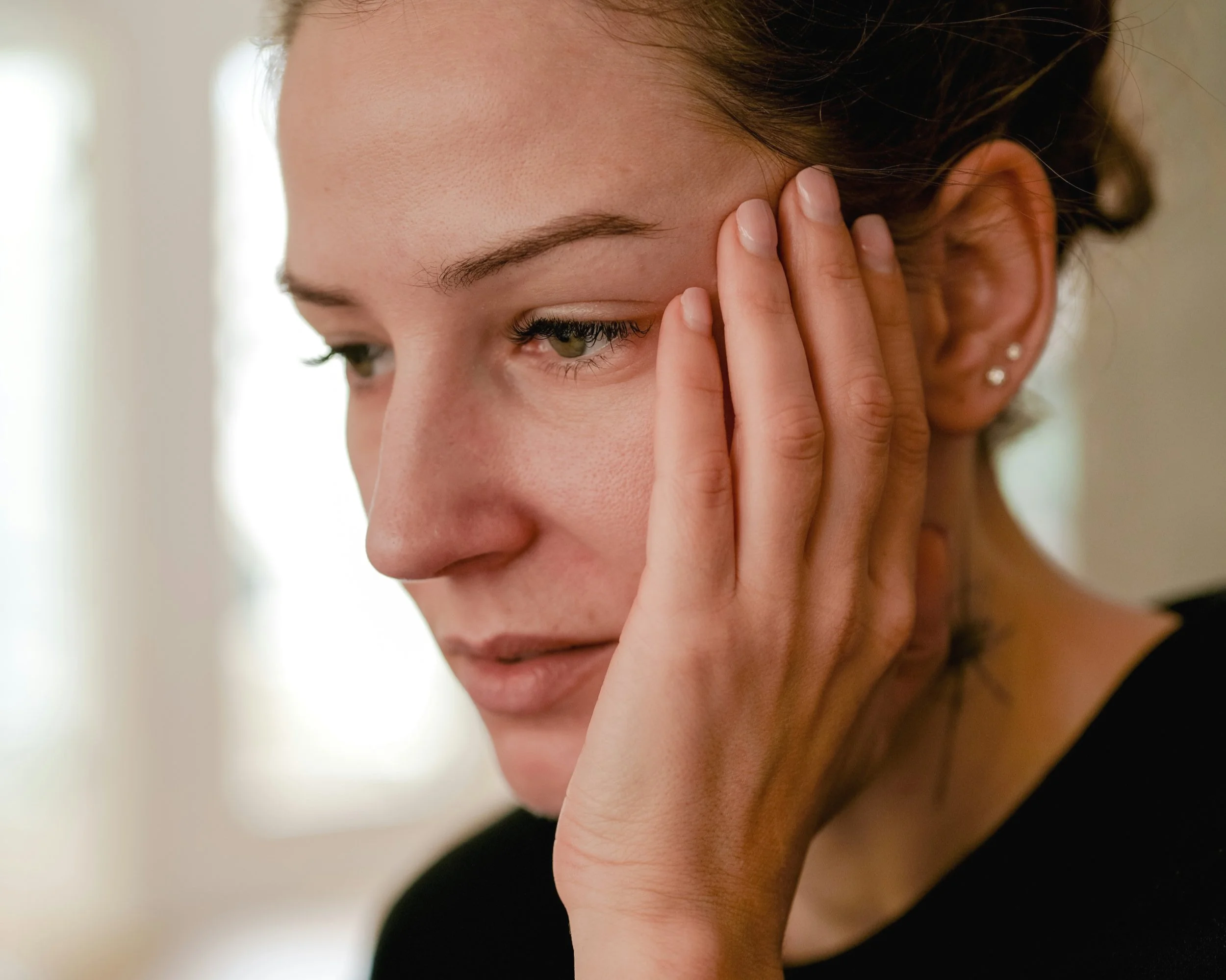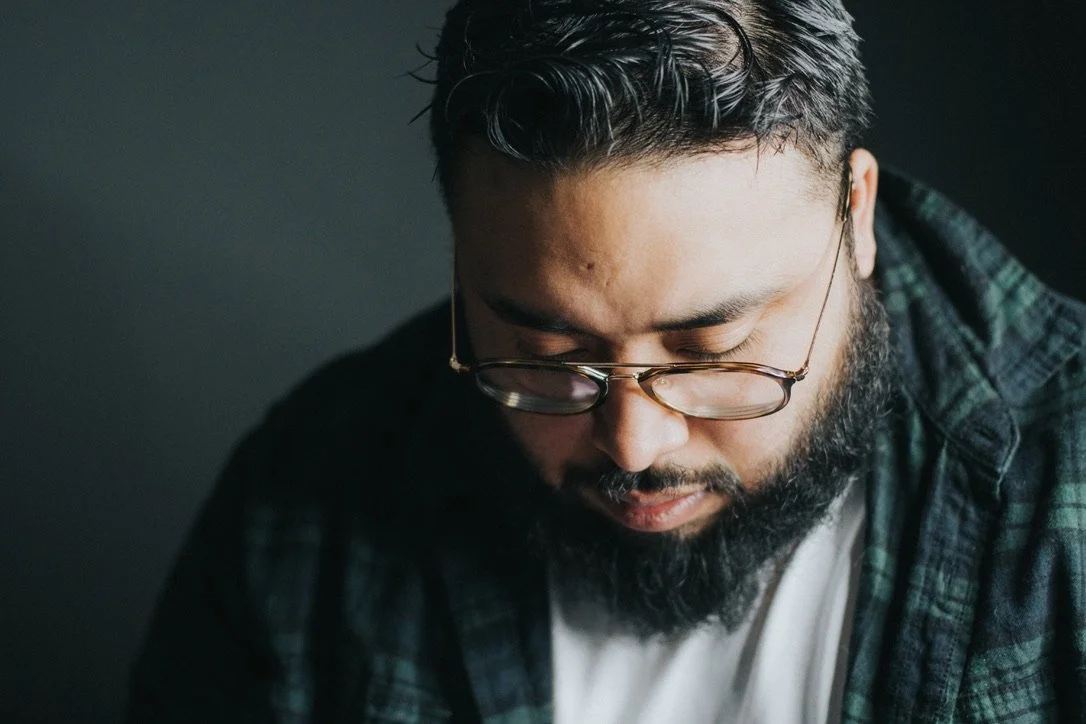
The Blog—Real-life riffs on anxiety, resilience, and being fully present
Looking for the blog? You found it—let’s dig in
I’m Victoria Wallace Schlicht—California-licensed Marriage & Family Therapist and certified Somatic Experiencing® Practitioner—something like a nervous-system whisperer minus the white cowboy hat..
I help anxious, high-functioning adults ditch the “I’m broken” story and find steadier ground. Let’s be honest, nearly everyone you know has either experienced high anxiety or brushed up against it—and how could we not? We’re living in a world that’s spinning faster than we were built to handle. Over-functioning is wearing us out.
We need better tools and a fresh perspective. Good news: I’ve got a stack of both, and I love to share them.
Welcome to my bully pulpit. Each post unpacks the science, stories, and somatic hacks that tame anxious spirals, increase self-regulation, and build real resilience.
Ready for deeper work? Get the scoop on my all-online California practice here.
Why Am I the Only One Who is Anxious
Anxiety can feel incredibly isolating—especially when it seems like everyone else is coping better. This post explores why anxiety makes us feel alone, how nervous system awareness can shift your experience, and what online therapy can offer when you’re stuck in your head.
You’re not the only one. Explore why anxiety can feel so isolating and how nervous system awareness can shift your experience of being “too much.”
Michael Heise—unsplash
Why does anxiety make you feel like the only one struggling?
When you look around your family, friendship circle, and
co-workers, does it seem like you’re the only one stressing out? Do you get the impression everyone else has somehow
got life wired and is managing better than you are right now? Always? Maybe struggling with a little Imposter Syndrome? Although you’re perceived as competent, does it feel like you’re faking it somehow? If they only knew how you felt and who you were on the inside, they’d never trust you with a coffee order, let alone a project at work.
Anxiety feels isolating, but you're not alone
Your anxiety and struggles are much more common than you'd guess. Yeah, just a part of the human condition at times. This I know, having daily worked with and focused on supporting highly anxious adults in my practice for the last fifteen years
I specialize in anxiety reduction. I utilize depth-oriented talk therapy, cultivating self-regulation and resiliency, and incorporating Somatic Experiencing (a gentle body-oriented trauma therapy) for a well-rounded, grounded, holistic approach to feeling better. While sometimes super uncomfortable and even debilitating, feelings of intense anxiety and even panic attack are common. Too common. In fact, these fears are quite prevalent in our surface-oriented-optimism-and-extroversion-is-good-for-business-and-life culture. Even if the only thing we’re selling is ourselves.
BBH Singapore—unsplash
Comparing yourself to others can fuel anxiety
We compare our inside experience to how other people present on the outside. How they want to be seen. Facebook, of course, is a great example of this. If we’re on social media at all, then most of us are curating our image. Editing. We show ourselves as we want to be seen: successful, accomplished, confident, happy, beautiful, or handsome.
It’s not new, of course. Presenting a front is part of real life too. Playing it close to the chest, when it comes to our fears and weaknesses has probably been going on since humankind reared up onto their two legs, if not before. In fact, we could argue this is just good survival strategy. Awesome adaptive behavior. It pays to look big, strong, assertive, experienced, and in control in the natural world. Everything from frogs to mammals have puffed up and played some competent, confident version of the I’M TOO BIG TO TANGLE WITH game. Or too fast to catch. Or too wily for you. We’re really not that different.
How anxiety and overthinking can keep you from enjoying life
Nik Shuliahin—unsplash
There’s a price to be paid, of course. All this subterfuge. All this hiding out with our insecurities and fears. For one thing, it takes a whole lot of energy to try and control our interior world and not let it leak out in some image shattering way. We don’t want to show when we’re sweating it. We really don’t want to let on when we’re panicking. Of feeling shaken. Here’s the thing, though. Your anxious responses are designed to save your ass and keep you out of danger, not run your life. And certainly not to ruin your life.
One cost of high anxiety and stress is feelings of isolation. The question posed at the start, “Why am I the only one?” is a self-isolating lie. When we are so invested in keeping a lid on it, we fail to open up to others. We lose out on the opportunity to connect and to connect most deeply. We miss the opportunity to be seen and known. We miss out on being loved for who we are. Our bogus painful story that we are inadequate or unlovable is sneakily reinforced. To top it off, our anxiety can keep us so caught up in our thoughts that we're not really available to be present and attentive to the people we care about most. We end up alone in our head, second guessing ourselves, and missing out on our share of the goodies.
Online therapy for anxiety and burnout in California
Ravi Patel—unsplash
Experiencing highly anxious states on a daily basis, or being run down by rumination and intrusive negative thoughts, doesn’t have to be the way it is for you. Even if it is more common than you imagine. You don't need to sacrifice your joy, happiness, and well-being. When anxiety and worry are running the show it’s a good time to get some support. You don’t have to try and solve it on your own. As much as it might go against the grain for you, lean in a little. Allow support. At least talk to a friend, or find a therapist like myself to confide in. A trained, neutral helper can be invaluable at times like this.
There are ways to break anxious patterns of experience. To reduce the painful and invasive thoughts. To sort it out a bit. Lower the level of anxiety, and with it, the depression and low mood. Lower the stress hormones running wild in your body. Reduce the physically uncomfortable sensations that accompany highly anxious moments and feed the cycle of negative and self-limiting thoughts. There are tools to learn. Habits to acquire. Some self-compassion to cultivate. Yes, there is life on the other side of overwhelming anxiety. And it is good.
I help people who feel bad feel better. Let’s talk. Learn about online anxiety therapy in California.
Boundary Issues & Anxiety
Poor boundaries can keep high-achieving adults stuck in anxiety and burnout. Discover how online anxiety reduction therapy helps you set limits and feel lighter.
How Online Therapy Helps High-Functioning Adults Set Healthy Limits
Key takeaway: Anxious overfunctioning often leads to poor boundaries, resentment, and burnout. Learn how anxiety-driven people-pleasing develops—and how clear boundaries can reduce stress, restore balance, and support authentic connection.
pexels-elevate
Healthy boundaries: your best tool for anxiety relief
You've heard about boundaries, right? I mean, we are always talking about boundaries, but I'm not too sure we understand the term fully. Or its power to create better and more fulfilling friendships and relationships. Good boundaries hold the power to improve our lives across the board. Or to herald a better and deeper understanding of ourselves, our own preferences, needs, and dreams. Experience life with more ease and less anxiety.
Why boundaries fuel personal growth
Raphael Mittendorfer-unsplash
Essentially, boundaries are how we train ourselves and others about how to behave. Boundaries allow us to build more satisfying relationships and even to stay in healthier relationships with some of the most difficult people we love. Boundaries create safety and greater satisfaction in our relationships.
Boundaries allow us to feel less chaotic, less stressed, less overburdened, and less alone. Boundaries are how we teach ourselves and others, "This far and no further." It's how we establish our limits and our preferences. Ultimately, boundaries are the Gold Standard in both self-care and in cultivating our self awareness regarding our own behaviors in interactions with others. Good boundaries allow our relationships to be more enjoyable and far less exhausting. Engaging in relationships becomes energetically sustainable again.
Learning to say “No” without guilt
I often teach clients about boundaries, saying, "Good fences make good neighbors." No, we don't want to wall ourselves off from others, but we do want to create healthy expectations and learn a healthy "No" or "That's enough." response when appropriate. We want to understand and have our associates understand the manner in which we want to be spoken to or treated. How much emotional and physical space we require? What is appropriate to request and expect from us in terms of help, support, a listening ear, and tolerance for poor behavior?
Janko Ferlic—unsplash
When childhood coping becomes adult people-pleasing
Often, due to the way we were raised or the experiences we have had in life, we don't know ourselves well enough to know what we need. Or we feel what we need is to make sure everyone around us is happy and everyone around us is pleased by our behavior and responses. We have not only lost track our needs, but our needs consistently take a back seat to the needs of others. It can feel like this is actually the way it is supposed to be. It may feel like it has always been this way.
In truth, for many of us, this has been the way it's been since we were toddlers. Sometimes, our chaotic or painful family systems felt like they required us to feel into the needs of the adults around us and do what we could to meet those needs. It makes sense. It's a safety first issue of survival and the highly intelligent or emotionally intelligent child is going to sense this and act on it. Good thing, too. These anxious coping strategies can serve us well in childhood and bring us through safely to the other side. The thing is those brilliant strategies of childhood do not serve us near as well as adults.
From caring to over-giving: anxiety’s hidden cost
Based on our experiences, over the years we may have morphed into people pleasers. People pleasing always arises from our anxious coping strategies. It helps us feel accepted. And safe. Especially safe. We developed the people pleasing habit to keep ourselves safe. And valued. This results in our not knowing what our needs are, where we end and the next person begins. It's nearly impossible to set healthy boundaries when we don't know our own needs. We may not even know what we prefer or how to make decisions that are self-valuing. As a result we can end up feeling inauthentic, unknown and unseen, and perpetually overextended, exhausted, and resentful. It's not a lot of fun. Sometimes it can mean we're not a lot of fun to be around, either.
Stay in your lane: boundaries for less stress & more energy
Tim Gouw—unsplash
Our unconscious boundaries and lack of boundaries are a huge personal development challenge. For ourselves, we need to understand what's our business and what's not. Just because we care about someone or have an opinion about them, their lives, and what we think they think of us or expect from us, doesn't mean any of that is actually our business. Or our job.
As an individual, your job is to know and understand yourself. Know, understand yourself and what you need in life and how to fulfill those needs in a healthy manner. It's actually not your role--not your healthiest role--to be a caretaker for everyone around you. It's not your job to know what everyone else needs and make sure you make that happen for them. That's their job. That's their personal work and area of personal growth. Get out of the way and let them have at it.
Boundary Work = burnout prevention for busy professionals
When we are trapped in our anxious experience of ourselves, it can feel like we have to act. There is no choice. That is your anxious mind lying to you, right there.
Doing the work of learning how to establish healthy, functional boundaries is a huge stress reliever. Everything in life will feel easier and more fulfilling, particularly your relationships, when you have established and are maintaining good boundaries. Life gets easier.
Better relationships start with better limits
pexels
The truth is, moving through this deep personal work, the hard work of boundaries, most often requires the support and mentoring of a trained helper. Our weak and permeable boundaries are so close to the core of who we perceive ourselves to be that it can be impossible to notice the issue on our own, let alone effectively address it.
When we stop overextending ourselves in our relationships, at home, in our friendships, and in our business relationships, then work and relationships become more satisfying, less exhausting, and less burdensome. Life feels immeasurably lighter—in your heart, in your mind, and in your body. When everyone takes care of themselves, gives and receives support relatively equally, then we are all more satisfied in life. Relationships become more enjoyable and much less stressful over time. We can learn boundaries and learn to be happier.
Online therapy in California: master boundaries from home
Happiness is definitely the learning curve we want to be climbing, isn't it? Fortunately, help is available. You can access online anxiety therapy from anywhere in California. Ready to turn stress into spaciousness?
Book a free 15-minute video consult and learn how online therapy can help you build rock-solid boundaries—no commute required.
I help people who feel bad feel better. Let’s talk. Learn about online anxiety therapy in California.
Why Somatic Experiencing: Anxiety Reduction
Discover how Somatic Experiencing® taps your body’s wisdom to soothe anxiety. Online therapy across California shows you step-by-step self-regulation.
A Body-First Approach to Calming High-Functioning Anxiety Online
Key takeaway: You’re not the only one. Explore why anxiety can feel so isolating and how nervous system awareness can shift your experience of being “too much.”
Victoria Wallace Schlicht-mixed media poster art
What is Somatic Experiencing
Somatic Experiencing® (SE) is a holistic, naturalistic, body-oriented therapy that directly addresses the manner in which your body and nervous system have stored your life experiences, including trauma and other stressors, and held them in the body. All your experiences, positive and negative, are held in your body. At some level, we all already know this.
These unprocessed, often unrecognized experiences fuel your anxiety, panic, sensations, physical and emotional pain, thoughts, beliefs, and behaviors. Based on 45 years of research and clinical application, Somatic Experiencing allows us to therapeutically harness your body as a primary healing agent and start to release and break down these stuck impulses in your nervous system.
Why Body-Oriented Therapy Beats Talk Alone for Anxiety
We can use Somatic Experiencing, your own mindful regard of your body and its sensations, to notice and track what is happening in your body, to allow these experiences to resolve. More importantly, and more powerfully, you can utilize SE to notice what is always already whole and well in your body and in your life. You can notice and champion your own innate well-being and strengthen your resiliency. This. This is the path to healing, wholeness, and a more deeply realized life.
Healthy Anxiety vs. Runaway Anxiety—Know the Difference
Dennis Alvear Perez —unsplash
Why are men and women using body-oriented psychotherapy for anxiety and panic attack? Because it works. If you're anything like the highly anxious adults I see in my practice every day, your experience of anxiety is felt strongly in the body. Overwhelmingly so. Anxiety can be a highly uncomfortable way to exist. You experience it in your gut, in the tightness in your chest and throat, breathlessness, through your racing heart, in your racing thoughts, and in the type and quality of thinking that is stealing your balance and happiness, and in your sense of debilitating overwhelm. At its worst, you may find it hard to even function and perform your daily tasks. High anxiety has the potential to steal your joy in the present moment, rob you of comfort and connection, disrupt your primary relationships.
When Anxiety Runs the Show, Call a Nervous-System Trainer
When anxiety has taken over, dictating how you feel, what you can and cannot do, some expert support is overdue. In addition to being trained as a Depth and Systems therapist, I have been fully trained in and daily utilize Somatic Experiencing, a body-oriented trauma and healing modality. In fact, I am a certified Somatic Experiencing Practitioner (SEP). It is a 3-year, post Masters, training working with the nervous system to support the healing of big and small traumas. It is also priceless for working with highly anxious nervous systems.
Hermes Rivera—unsplash
Next Step: Online Somatic Therapy for Californians
One thing I love about holistic body-oriented approaches is everyone I know already has a body. No need to acquire one. You already have everything we need in order to create more calm, peace, and comfort in your life. Wouldn't it be nice to learn how to work with both your mind and your body to reduce your anxiety and begin to reclaim your life? Start now and harness your body awareness to learn the deep, deep skills of self-regulation, cultivate resiliency, and get your life back on track. Maybe for the first time. We can do it together, one step at a time.
Ready to calm your body and mind? Book a free 15-minute consult and learn how online Somatic Experiencing® therapy can shrink anxiety—no commute, anywhere in California.
I help people who feel bad feel better. Let’s talk. Learn about online anxiety therapy in California.















